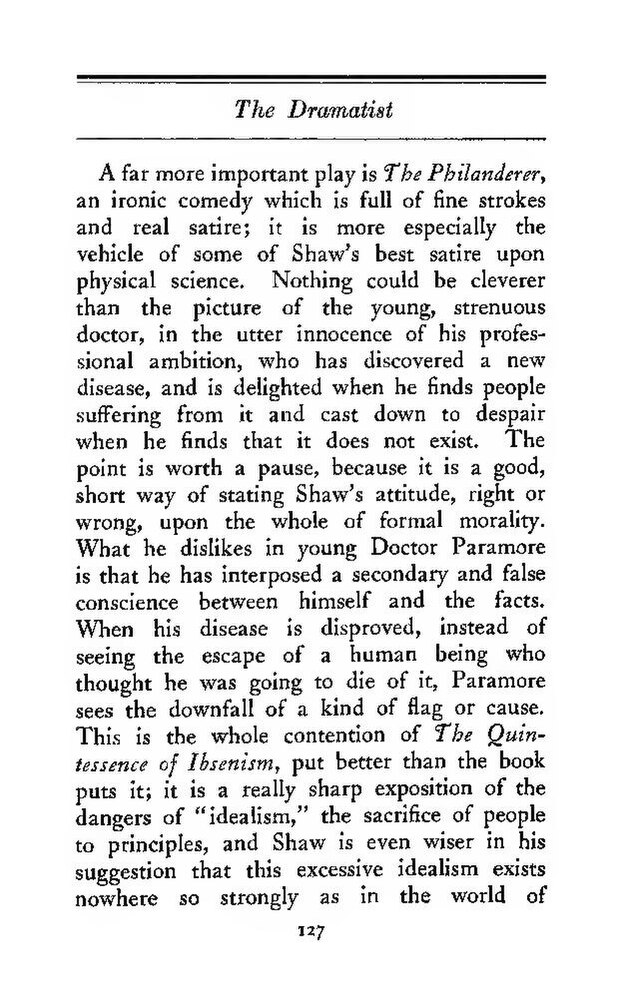A far more important play is The Philanderer, an ironic comedy which is full of fine strokes and real satire; it is more especially the vehicle of some of Shaw's best satire upon physical science. Nothing could be cleverer than the picture of the young, strenuous doctor, in the utter innocence of his professional ambition, who has discovered a new disease, and is delighted when he finds people suffering from it and cast down to despair when he finds that it does not exist. The point is worth a pause, because it is a good, short way of stating Shaw's attitude, right or wrong, upon the whole of formal morality. What he dislikes in young Doctor Paramore is that he has interposed a secondary and false conscience between himself and the facts. When his disease is disproved, instead of seeing the escape of a human being who thought he was going to die of it, Paramore sees the downfall of a kind of flag or cause. This is the whole contention of The Quintessence of Ibsenism, put better than the book puts it; it is a really sharp exposition of the dangers of "idealism," the sacrifice of people to principles, and Shaw is even wiser in his suggestion that this excessive idealism exists nowhere so strongly as in the world of
127
